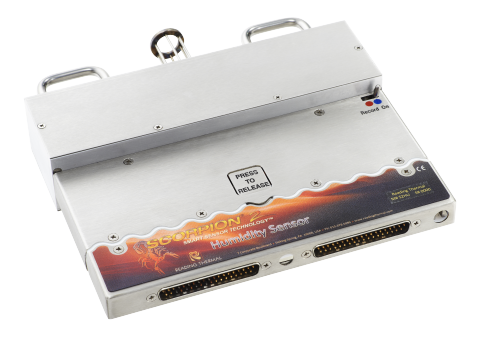While your products are baking, they are making use of the available moisture, or humidity, inside your industrial bakery oven. Without it, the quality and texture of your products will not turn out as expected. The SCORPION® 2 Humidity Sensor from Reading Thermal can help you measure and document the oven moisture and finished product moisture to achieve the best results.
Reading Thermal, headquartered in Sinking Spring, Pennsylvania, has been studying, measuring, and understanding the commercial baking process for more than 25 years. We manufacture and support the SCORPION® 2 Profiling System which has become a standard in the baking industry.
Why is Humidity Profiling Important?
Products passing through a thermal process interact with the amount of moisture in the environment. This moisture often comes from the product itself and represents a delicate balance affecting finished product quality in many ways. For example:
- High oven humidity can increase the volume of your baked goods.
- The amount of moisture left in a pretzel after baking can impact its shelf life.
- Reducing evaporation can keep the surface of a cookie moist, allowing it to stretch and preventing cracks.
- High oven humidity can lighten the crust color of baked goods.
- Some products need to maintain surface condensation to produce a concentrated sugar solution that gives the surface a glaze.
- The amount of moisture in a finished product can directly affect breakage during the packaging process.
How to Measure Oven Humidity
The SCORPION® 2 Humidity Sensor measures the absolute moisture content of the thermal environment in both heating and cooling processes. The sensor travels through the oven with your product, yielding a precise profile of moisture experienced by the product.
Mechanically, the humidity sensor has a high temperature moisture sensor, a low temperature moisture sensor, and a bulk air or dry bulb temperature sensor.
In ovens, the humidity sensor can be used to document the relationship between oven moisture and finished product moisture. In Cooling Tunnels, it can be used to monitor dew point temperature to prevent condensation on the product surface.
You may be interested in our humidity profiling case study of two ovens for a Reading Thermal client in Germany that was having trouble producing the same quality of pretzels on two different production lines.
Don’t ignore the performance of your industrial bakery oven. Consider the SCORPION® 2 Humidity Sensor from Reading Thermal, as well as our other sensors and sensor arrays. With the right amount of moisture, your products will bake efficiently. Contact us online, or call our headquarters in Sinking Spring, Pennsylvania at (610) 678-5890 Ext. 2 to learn more about our innovative products.

